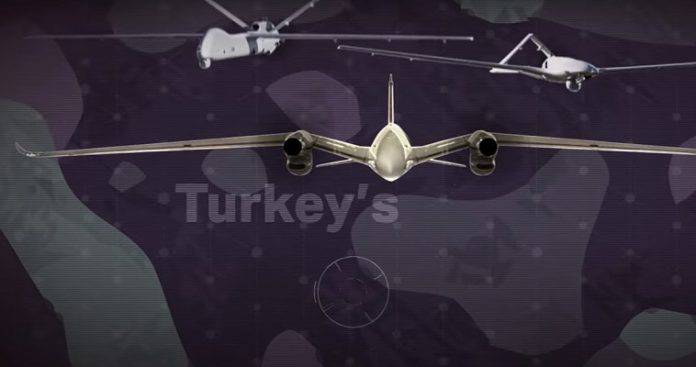Giorgos Lykokapis: Why Greece should be worried about Turkish drones
03/12/2020
European Council on Foreign Relations analyst Gustav Gressel, in an article, called on European capitals to be “concerned” about the growing involvement of Turkish drones in Ankara’s war fronts. Although the European analyst does not make special reference to the Greek-Turkish confrontation, obviously the conclusions of his article directly concern Athens.
It was the Americans who previously extensively used unmanned aircraft in the so-called “War on Terror”, bombing al Qaeda members in Pakistan and Afghanistan, as well as more recently against top-rated targets of the Iranian regime, such as the Iraqi army. Revolutionary Guardsman Kassel Soleimani in Iraq, exactly one year ago.
Turkey, which has its own front with the PKK Kurds, has long decided to vigorously enter the new era of war. Gressel notes that Turkey has dramatically expanded its domestic drone production, with mass production of Bayraktar and Anka-S, to compete with the United States in the new form of war of our century, which the British Secretary of Defense has described as a “game-changing”.
The Turkish Bayraktar drones have a prominent place in the military cooperation that Turkey signed with Ukraine in mid-October, where, among other things, the supply and co-production of unmanned vehicles were agreed upon, the effectiveness of which Kyiv seemed to count on in its “defense of the territorial integrity of Ukraine,” apparently from Russia.
The “dread” of the Armenians
The European analyst points out that one of the factors in the Azeris’ victory in the Nagorno-Karabakh war was Turkish drones, such as the Bayraktar TB2, which proved to be the “fear and terror” of the Armenians. These drones can fly for up to 24 hours and are equipped with “smart” missiles, as well as cameras. Their operational performance made the rounds of Turkish mainstream and social media.
The drones also played a key role in Turkey’s military involvement in Syria, with Turkey effectively hitting tanks and armor of the Syrian army, while it was the Bayraktar drones that had helped prevent General Haftar from occupying Tripoli, as from April 2019 he was besieging the Libyan capital. However, not only the Turks but also the Iranians benefitted from good operational “advertisement” of drones, specifically on the Yemeni war front.
In September 2019, Yemen’s Shiite Houthi rebels used some cheap Iranian-made drones to hit the oil facilities of Aramco, Saudi Arabia’s best-guarded target, at a time when the Sunni kingdom had paid billions and billions of dollars for American weapons systems.
In a statement, Gressel, who we believe is of particular importance, said that “Most of the EU’s armies – especially those of small and medium-sized member states – would do as miserably as the Armenian army in a modern kinetic war,” as they had not adapted their defense industry to deal with a “drone swarm”, as he characteristically states. The European analyst’s concerns, although they do not take into account some particular features of the Greek deterrent, are entirely justified.
The drones on the front lines
A country steeped in neo-Ottoman bigotry and “Blue Homeland” theories, strongly reminiscent of the interwar theories of “living space”, may have an “army” of deadly unmanned vehicles, which cost less than conventional air forces. of course offer a necessary advantage on the battlefield: reserves, with easy replenishment of any losses.
As the Turkish Air Force has been “stigmatized” for its pilots’ involvement in the 2016 coup, drones will certainly have a prominent place in the undeclared Aegean war, as shown by last September’s “hybrid” Turkish drone attack which doused red paint on the Greek flag painted on Kastellorizo, accompanied by martial songs.
With Turkey putting drones on the front lines of the war fronts it is involved, obviously, the Hellenic Air Force can not lift F-16, Rafale, or F-35 to stop a possible “swarm” of Turkish drones that will carry out “attacks” of psychological warfare, extensive violations of Greek airspace and photographing of Greek military installations. The financial cost and fatigue of personnel will be unbearable.
In response to the threat of Turkish drones, Greece has agreed to lease Israeli Heron drones, which will join the Hellenic Air Force in the coming months, while Intracom Defense recently built the Lotus drone for the EU, which will be used for border surveillance. These are some of the first steps, but the Greek deterrent must go even further so as to “confront and intercept” Turkish drones, as Gresel says of the European defense industry, as unmanned “swarms” is one aspect of the reality of war, in our times.





